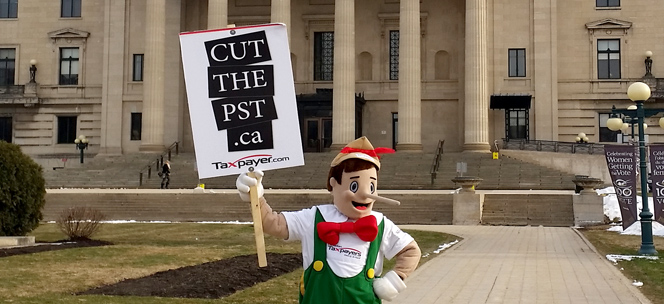A budget of good intentions

This column was originally printed in the Winnipeg Free Press on June 1, 2016
A better title for the first Manitoba Progressive Conservative budget would be Good Intentions.
This is not entirely a criticism. Good intentions are a necessary prerequisite for good deeds. For too many years, Manitoba budgets had neither good intentions nor good deeds. But the budget’s actual title, Correcting the Course, is a bit ahead of reality.
First, some good news.
The new PC government intends to provide tax relief for families that have long carried a heavier burden than their prairie neighbours in Saskatchewan and Alberta. There are no actual tax cuts in this budget. However, there’s a subtle change that’s important.
Bracket creep happens when people get cost-of-living increases in their incomes and then get bumped into higher tax brackets even though they aren’t really any richer. Because the income tax brackets and tax credits stay the same, it means every year people pay slightly higher taxes. Other provinces, such as Saskatchewan, have long solved this problem by adjusting tax brackets for inflation. For years, Manitoba failed to implement this simple principle of fairness.
This provincial budget protects taxpayers by ending bracket creep and indexing both tax brackets and the personal exemption to inflation starting Jan. 1, 2017. This change will stop an additional $24.4 million from being sucked out of Manitoban’s jeans next year.
Ending bracket creep has been a long-standing campaign of the Canadian Taxpayers Federation. Fixing this problem fulfils a PC party campaign promise and is an important victory for taxpayers.
Speaking of campaign promises, there’s no mention of the promise to cut the PST to 7 per cent from 8 per cent. Nobody expects the new government to cover every promise in the first year, but there’s no doubt cutting the PST remains prominently on the to-do list.
The budget also outlines good intentions to balance the budget. The government has wisely promised not to raise taxes, but this makes it critically important to find efficiencies and trim spending.
There are some small notes of good news on the spending front: the government is reducing the number of ministers in cabinet by one-third, that will save $4 million; it’s getting rid of the taxpayer-funded subsidy for political parties that will save about $600,000; and the government is going to do a value-for-money audit to find more savings.
Unfortunately, these savings are very small drips in a very large bucket of deficit.
The deficit is now $911 million. The government is quick to point out the projected deficit is lower than the $1 billion deficit last year. That’s true, but only in the way that drinking 11 beers results in a smaller hangover than drinking 12.
The government projects $874 million in interest costs. That’s money that doesn’t go to roads or hospitals, teachers or nurses, tax relief or paying down the principal on the debt. This year’s deficit will add tens of millions to interest payments.
Spending is still the heart of the problem. The government plans to collect 3.1 per cent more than last year. But it plans to spend 3.2 per cent more than last year. That’s more than half a billion more in spending.
It’s is difficult to the point of impossible to balance a budget while increasing spending. Past deficit slayers, from Roy Romanow and Ralph Klein to Jean Chrétien and Stephen Harper, all trimmed spending to get back into the black.
As a result, the government says it plans to balance the budget in eight years. Or, put another way, it plans to run deficits for seven years. And interest payments will grow and grow all the while.
While this budget is far from perfect, it’s important to recognize the positive step it represents.
The previous NDP government made no real effort to balance the budget.
It responded to credit rating downgrades by saying it had a plan and the plan was working. It attacked the gaping hole of debt with enthusiastic shovelling.
The Manitoba government now recognizes chronic deficits are a problem. It is taking steps, however tentative, to address the growing danger of runaway debt.
In a budget delivered only months after an election, even small steps are welcome.
More needs to be done. The next budget and those thereafter will have to deliver action to move from good intentions to an actual course correction.